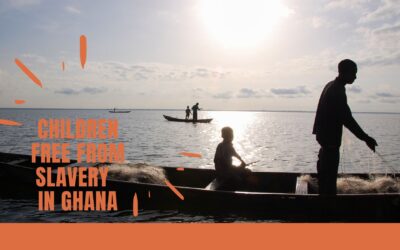It is a familiar situation in West Africa. A child is sent to live with a relative and made to take care of all household chores, leaving them no time or energy attend school. It happened to Seth Boateng two years ago. His father left the 16-year-old with an aunt, with no promise of return.
Seth had to wake up at 4 a.m. to perform all the domestic chores for the house: fetching water, sweeping, washing dishes and cooking meals for the entire family. He was rarely allowed to eat the food he cooked. He would fall asleep at 10 p.m., exhausted — having to repeat it all the next day.
Fortunately, this case of child domestic servitude caught the attention of Mary Kusi, a member of a child rights learning group in her community. The group formed after the introduction of a child rights curriculum in the community by FTS and Participatory Development Associates (PDA). The awareness-raising program educates residents about child exploitation and encourages them to take action.
Mary confronted Seth’s aunt about the way he was being treated. Mary eventually took Seth into her own home and reported his case to authorities. PDA continues to follow the incident, providing assistance and support when necessary.
Mary’s intervention demonstrates that child rights education can produce tangible change. The learning process empowers participants to speak up and act when they encounter an injustice such as child domestic servitude.
Seth’s aunt did not send him to school while he worked as a servant in her home. But his desire to get an education was not fully extinguished. Even though he was often late to class and found it difficult to concentrate, he continued to take on additional work outside of his household tasks by shining shoes to pay for his books, student fees and feed himself while at school.
Now, thanks to Mary’s initiative, Seth no longer has to wake-up early and is given all he needs to attend school and focus on his studies.
You can read more about our child rights project on our Ghana webpage, including the detailed report on our child rights in mining pilot project.


